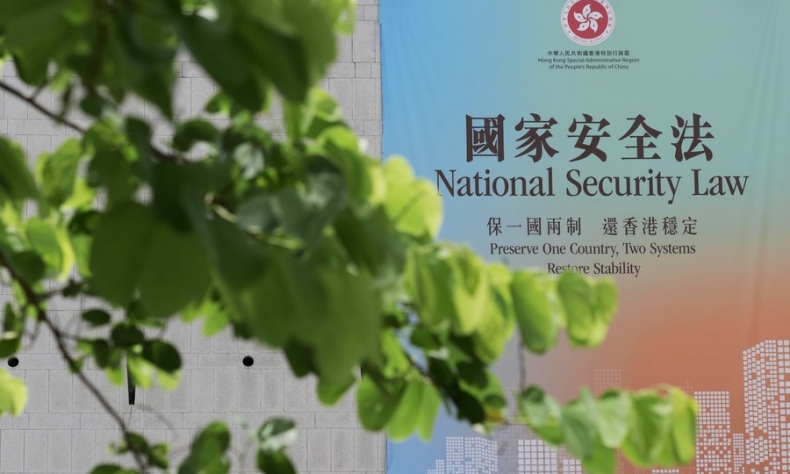New National Security Law in HK: Tough Yet With a Human Face

The Law has teeth in handling national security issues. Nevertheless, it has also a human face, attentive to the human rights and freedoms of Hong Kong residents guaranteed by the Basic Law.
The National People’s Congress Standing Committee’s adoption of the Law of the People’s Republic of China on Safeguarding National Security in the Hong Kong Special Administrative Region (National Security Law) has ignited much debate on the impact it will have on the freedoms enjoyed by its residents.
The Law was enacted to safeguard national security by preventing, suppressing and imposing punishment for the offenses of advocating secession, subversion, organization and perpetration of terrorist activities, and collusion with a foreign country or with external elements to endanger national security in relation to Hong Kong.
The intention in regard to its effect, among others, is to deter any act or activity endangering national security, as was evidenced by the decision of Joshua Wong, the leader, and many others to abandon the pro-secession group Demosisto.
In this regard, however, the deterrent effect of the law on prospective separatists, subversives and terrorists and those colluding with foreign forces, as well as the stern atmosphere that may be derived from the legal toolkit for suppressing and imposing punishment for such offenses should not, in any way, be regarded as suppressing the freedom of ordinary Hong Kong residents.
Instead, the law enforcers are required to respect human rights while safeguarding national security in Hong Kong and fully protect the rights and freedoms enshrined in the Basic Law and the international covenants on civil and political rights and on economic, social and cultural rights.
With or without this Law, Hong Kong residents’ rights in regard to freedom of speech, of the press, of association, of assembly, of procession and of demonstration, are not to be affected.
Moreover, the Law demands that the principle of the rule of law be adhered to in any activities for preventing, suppressing, and imposing punishment for offenses endangering national security.
The well-established principle of the rule of law means that no one can be convicted and punished for an act not constituting an offence under the Law, and that a person is presumed innocent until convicted by an appropriate judicial body.
The spirit of the rule of law can also be found in the provision that the Law is not retrospective. Even though groups like Demosisto seriously harmed the stability of Hong Kong and national security through the committing of acts and activities as described in the Law, they cannot be prosecuted for their notorious acts committed prior to the date this Law comes into force.
A comparison between this Law and something similar, such as the Internal Security Act (ISA) adopted in the former British colonies of Malaysia and Singapore, demonstrates that the national security law for Hong Kong is in full accord with the rule of law.
While both this Law and the ISA were enacted for the purpose of safeguarding national security in their respective jurisdictions, the stark disparity of the two laws is obvious.
Under the Hong Kong legislation, law enforcement agencies are only allowed to take actions against targeted acts and activities as specified by it. While the ISA specifies that a specially designated government body can take swift actions with a court order alone against anything deemed to be a threat to national security.
Again, under the ISA, the law enforcement agency is empowered to employ various measures that it considers necessary, including preventive detention. In regard to the Hong Kong Law, those enforcing it must follow the rule of law in any actions against targeted acts and activities.
When we consider the issue from its contrast with the implementation of the ISA, the Hong Kong Law can be described as “tough yet mild.”
In conclusion, the Law has teeth in handling national security issues. Nevertheless, it has also a human face, attentive to the human rights and freedoms of Hong Kong residents guaranteed by the Basic Law.
Professor Kong Qingjiang is dean of the School of International Law, China University of Political Science and Law.
 Facebook
Facebook
 Twitter
Twitter
 Linkedin
Linkedin
 Google +
Google +










